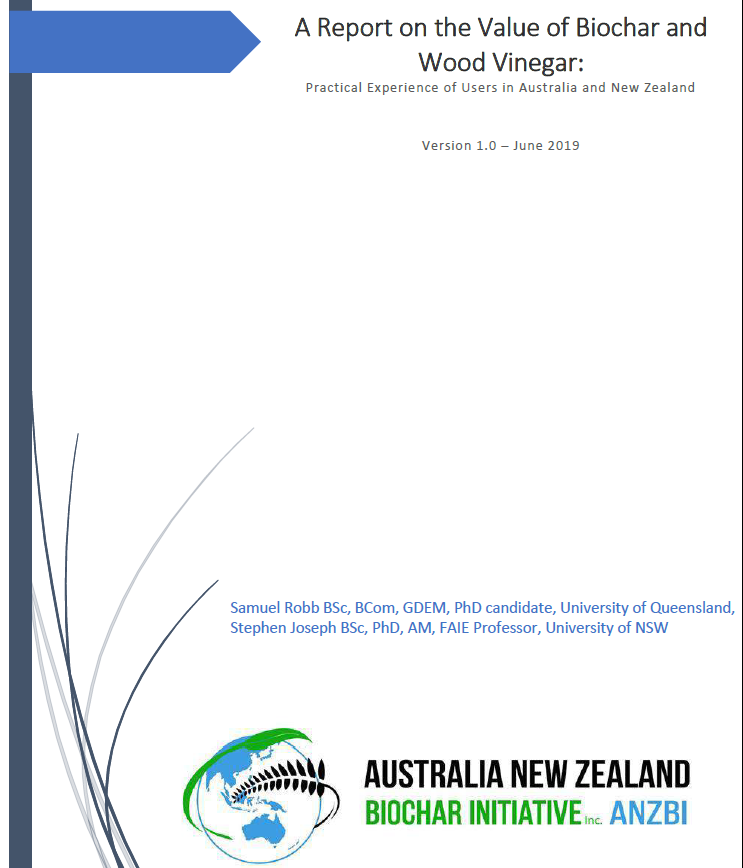A new report Co/ our friends at ANZBI which includes some NZ content. Click on the cover image below to download from ANZBI website…

Summary
Biochar and wood vinegar are emerging technologies with numerous applications in agriculture and environmental remediation. Advocates and early adopters of these products are well versed in their positive attributes. Biochar, for example, has been shown generally to increase crop yields in tropical latitudes, remediate soil, reduce soil greenhouse gas emissions and sequester carbon amongst many other observed benefits.
Yet it is arguably the case that not enough focus has been given in financial feasibility studies to the benefits observed by users of biochar beyond its use as a soil amendment. Existing studies in high income countries tend to focus on soil amendments in low value cereal crops, and with the exception of Joseph, et al., they overlook biochar’s use as an animal feed, for soil remediation and for water use efficiency.
This report begins to address this knowledge gap by providing an account of how biochar and wood vinegar users are accruing benefits or disbenefits in their farming operations. In March and April of 2019, the Australian New Zealand Biochar Initiative (ANZBI) surveyed sixteen current users of biochar and six users of Wood Vinegar. The survey found that:
• The use of biochar as animal feed is an important emerging market in Australia. Those who feed biochar to cattle do so on a daily basis for the purpose of improved cattle health, improved cattle weight gain, methane emissions reduction and reduced feed cost.
• Biochar is being used as a soil amendment to improve the crop yields and the produce quality of higher value crops (fruits, vegetables, nuts, horticulture), but the business case remains challenging for broadacre cereal crops. These users were found frequently to produce their own biochar and to apply it on a monthly or annual basis.
• Adding small amounts of biochar and minerals to chemical fertilisers (as has now been commercialised in China) has the potential to increase yield, profitability and quality of vegetables and grains.
• Wood vinegar is being used to increase rates of seed germination, reduce fungal diseases and to improve both plant health and crop quality. Users of this product were frequently fruit and nut farmers.
Furthermore, the report includes in-depth case studies including biochar’s use in a golf course, for use in an avocado orchard, for use as an animal feed and for use in a potato farming operation. These in-depth case studies exhibit circumstances under which biochar not only breaks even for the user, but is lucrative.
A review of the biochar literature examines emerging products and innovations. It highlights the importance of practices such as banded application for improved user value and the high performance of biochar fertilisers. It further remarks on the discrepancy between the literature and the commercial reality.
